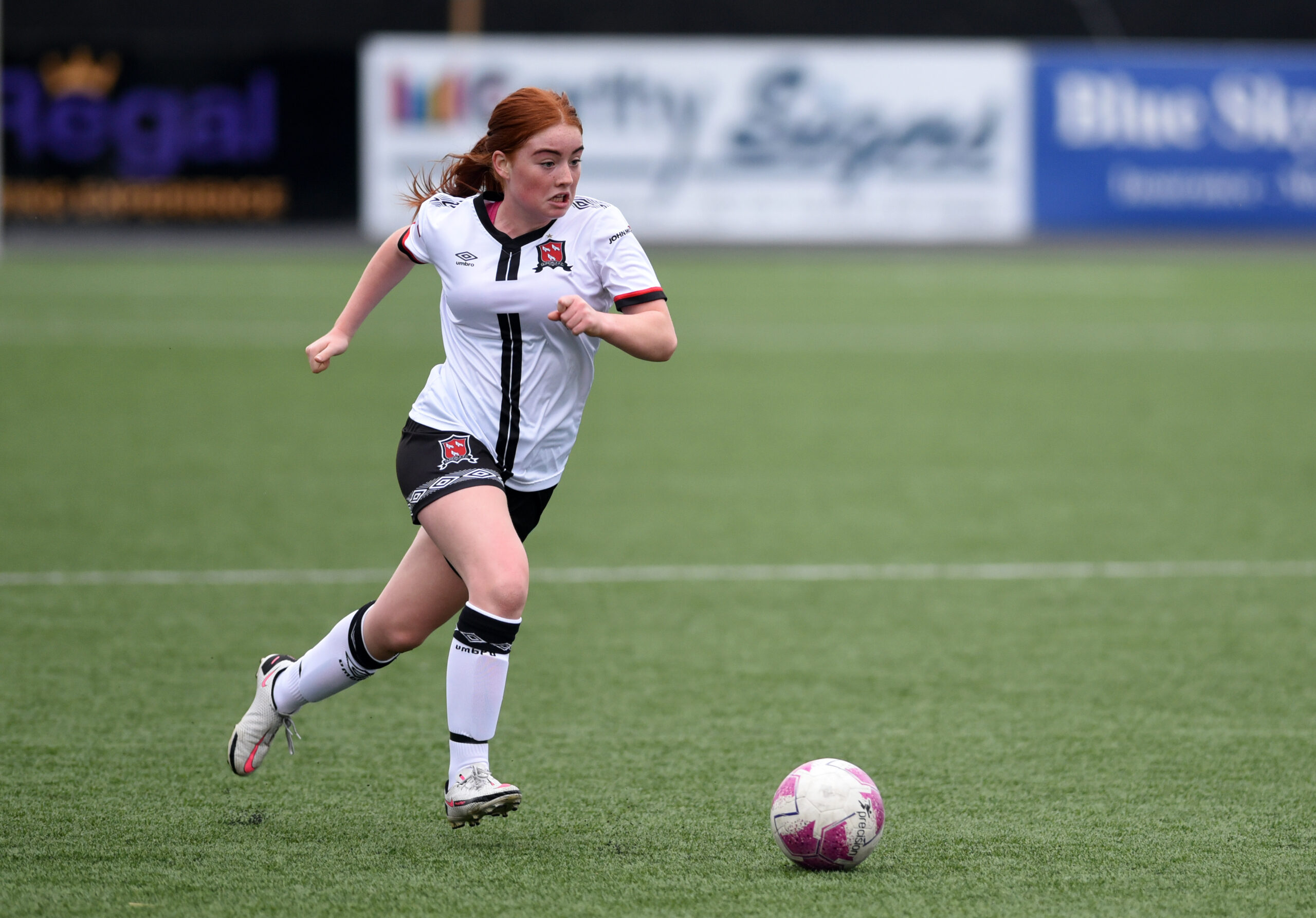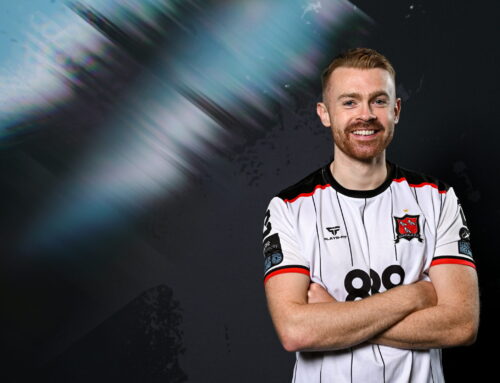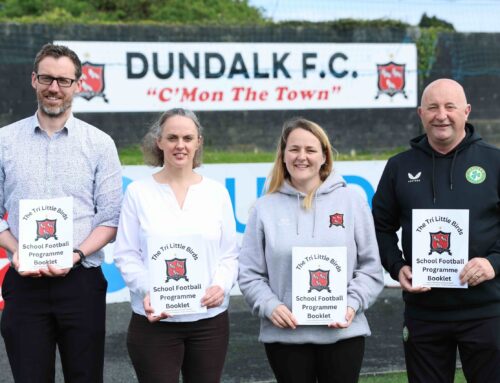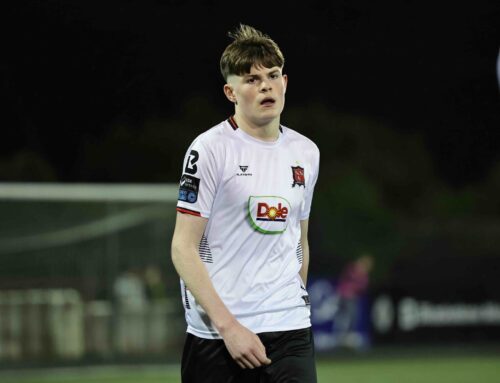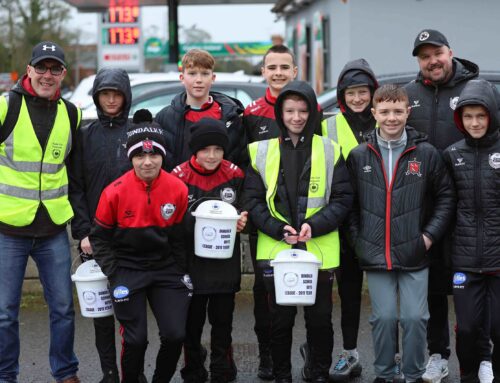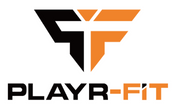Dundalk FC U16 girls manager Bernard Freeman is confident of establishing a girls team in each age group of the National League, including a senior women’s team, over the next 12 months.
Speaking to dundalkfc.com, Freeman discussed the importance of having a girls team in each age group of the National League and establishing a path of progression all the way up to senior level.
“The aim for us is certainly to reach that level. It’s massive to have that for the girls to progress,” said Freeman. “I took this job on four years ago, as the head of ladies football. There were changes of ownership and management at the club, and hopefully, I’ll be back in that role soon. When I started in that role, I had a five-year plan, and we’re now four years into that plan, which was to have a senior women’s team here.
“We’re nearly there. We’re looking at having a U17 National League squad, a senior women’s National League squad, and a U14 or U15 girls team playing in the Metropolitan Girls League (MGL) to progress from. The plan is there on the table, and it’s still going ahead. We’re pushing for it to happen next year, especially as our U16 team would then move into the U17 National League. Our U19 girls at the moment would then move into the senior National League. That is a huge step, but it’s one that we believe they’re ready for.”
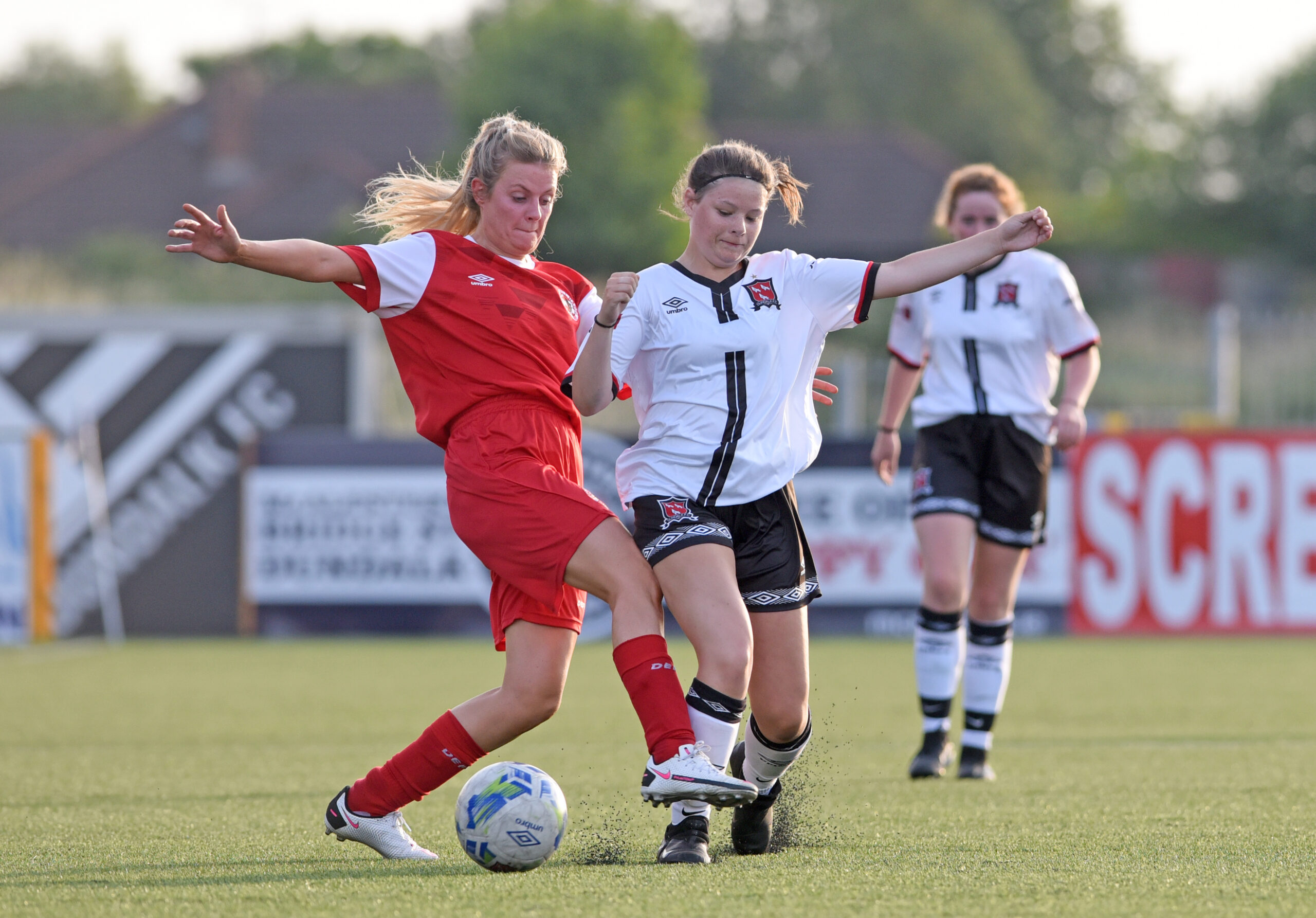
Dundalk U17 girls’ Louise Johnson in action against Cootehill Harps. Photo by Ciaran Culligan
The main challenge for Dundalk entering the women’s National Leagues will be retaining their players and recruiting new players ready for that level.
“Our biggest problem now will be holding on to our players and recruiting players to add to our current squad. If we were to stay in the MGL for another season, I think we’d lose players. We’ve already lost three of our U19s to other clubs that could promise them National League football, which is something we couldn’t do at the end of last season.
“We weren’t guaranteed what would happen with the changes in club management. Things have steadied out now and, hopefully, this year we can push forward and keep it going, but it’s a lot of work and commitment from players and coaches alike.”
It is not only the recruitment of players that poses a challenge. Finding new coaches to take charge of the women’s teams is another task that is high on the list of priorities for the near future.
“Having coaches with the relevant badges is another important thing for us. The girls play at a really high standard at the moment where they’re coming up against the best teams in the country, but on the coaching end of it, you don’t have to have specific badges. Whereas when you go to the National League, there’s a step-up, not just for the players, but for the coaches as well.
“It’s a matter of getting that commitment from the coaches. Hopefully, we’ll have a couple of surprise appointments for our coaching staff in the next few weeks. That’s something I’m working on at the moment, so hopefully that all goes through. I absolutely think the girls are capable of making that step up to the National League, and it’s certainly something that’s needed.”
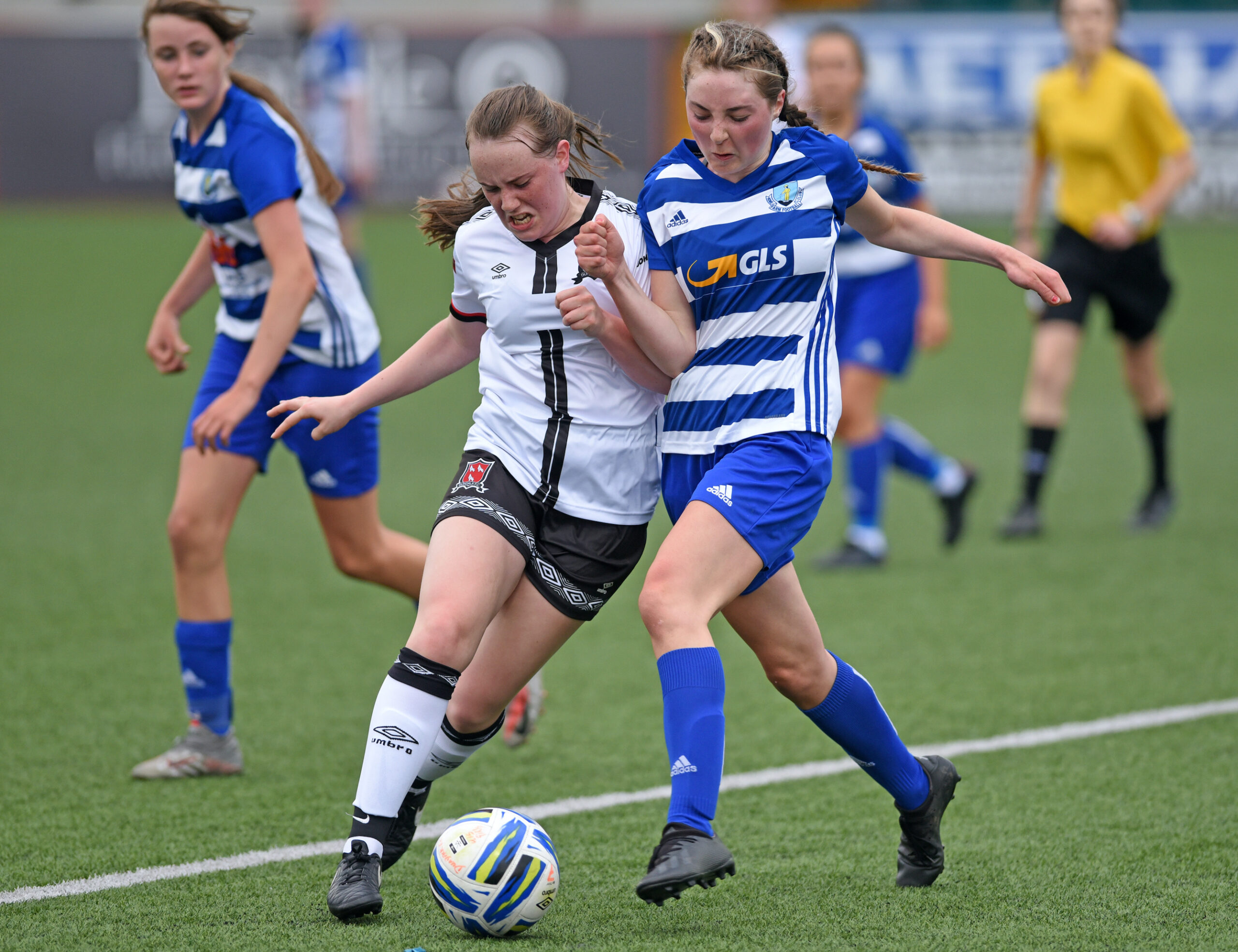
Sophie Hanlon in action for the U16 girl’s team. Photo by Ciaran Culligan
The growth of women’s football around the world has played a major role in the improvement of the women’s leagues in Ireland and Freeman believes this has had a major impact on players currently in academies around the country, including at Dundalk.
“I think the Women’s World Cup made a massive difference to women’s football all over the world,” he said. “I believe the standard of football was some of the best we’ve seen in years. Especially with the money that’s pumped into the men’s game and the standard that comes from it, whereas the girls are on a quarter of the money and are playing more entertaining football a lot of the time.
“With the Ireland women’s team as well, you’re starting to see more crowds in Tallaght to watch them. We bring our girls up every chance we get. You can show them the levels that they can reach if they keep working hard.
“On that note, we had two of our U16 girls up for Irish trials recently, and one of them has progressed to the next stage, so hopefully we will see her playing for Ireland soon.
“That’s only the start of it,” he added. “It shows the commitment of the players that they’re already getting that far. We currently have nine girls in the MGL Academy in Dublin. Up to three years ago, we had none. In fact, there was never a player from outside Dublin in that academy. It was all Dublin-based players. Dundalk is the first club to get a player in there.
“We then have five players in the Emerging Talent set-up in the FAI, then like I said there about the two girls with the Ireland trials.”
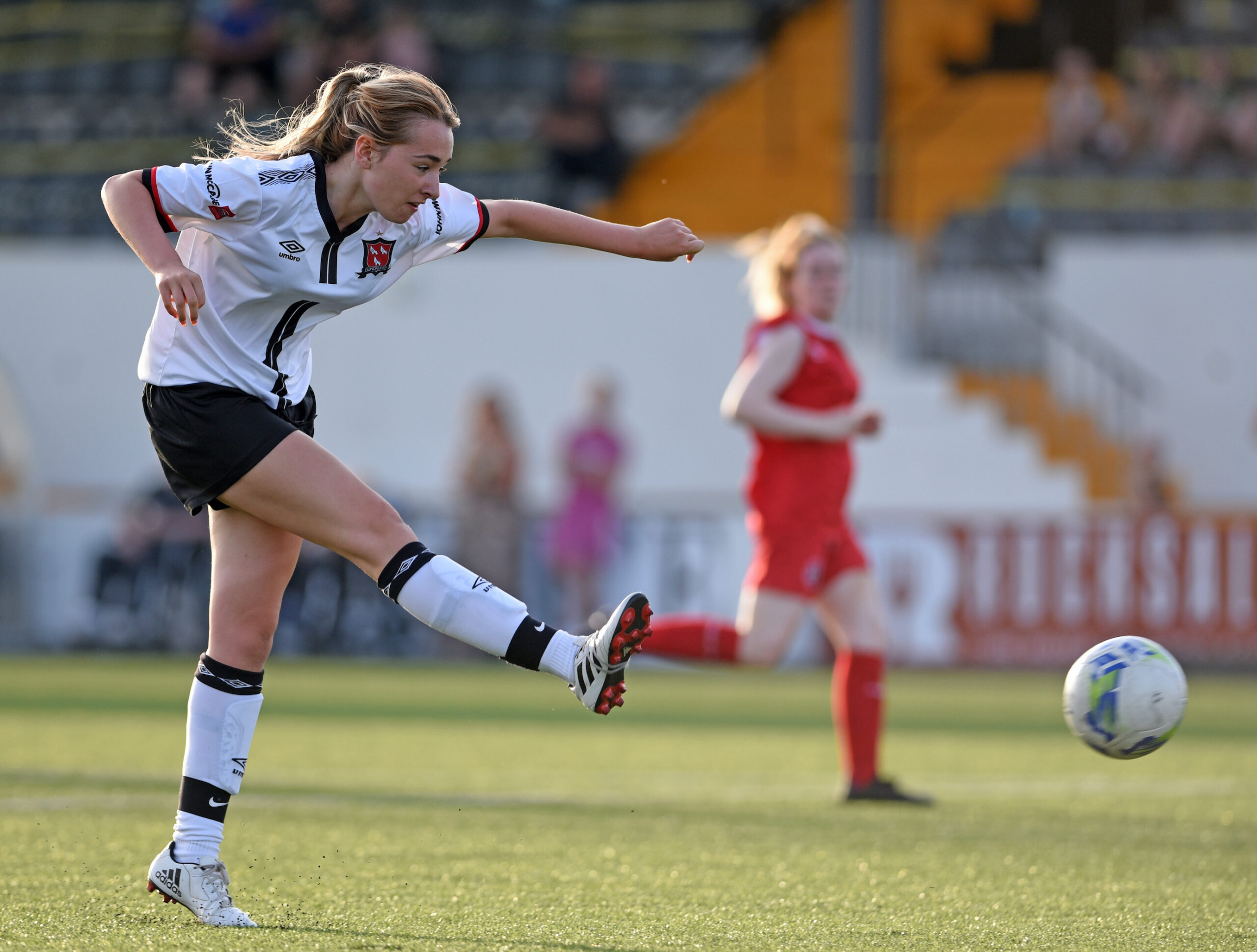
Caoimhe Mulholland scoring against Cootehill for the U17 team. Photo by Ciaran Culligan
With several players at the club hitting those heights recently, it is seen as a huge positive when it comes to the recruitment of new players.
“Having players reach that level will also help attract players to the club. Dundalk has always been known to have great senior and underage boys teams. Years back, we actually had a women’s team that played in Europe, and that’s the level we want to get to again. Having these players reach that national team level is only going to promote the club, and it will be appealing for new players coming here.
“We’re hoping that Dundalk will be seen as one of the big clubs, alongside the likes of Bohemians, Peamount, and DLR Waves, and that we can attract players of the highest standard. If we can show that it’s worth traveling outside of Dublin to play with us, then we can absolutely reach those levels.
“It’s now all about promoting Dundalk as a top girls’ team, as well as a top boys’ team at the youth level. When I finish at this job, I hope to see the senior women’s team and the senior men’s team in the Aviva Stadium, on the same day, with both teams coming home with the two FAI Cups. When we do that, I’ll be happy.”

